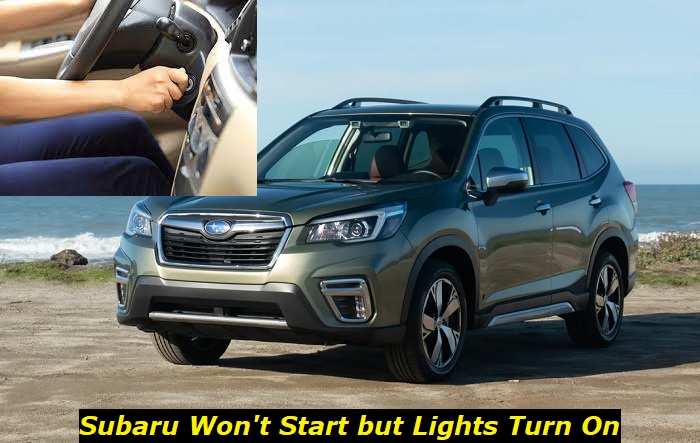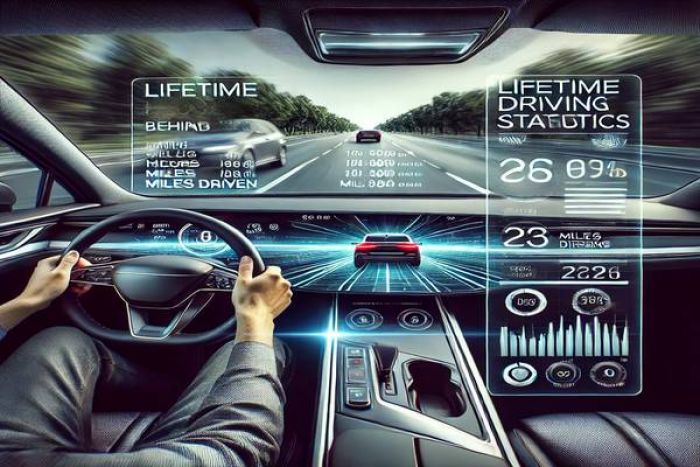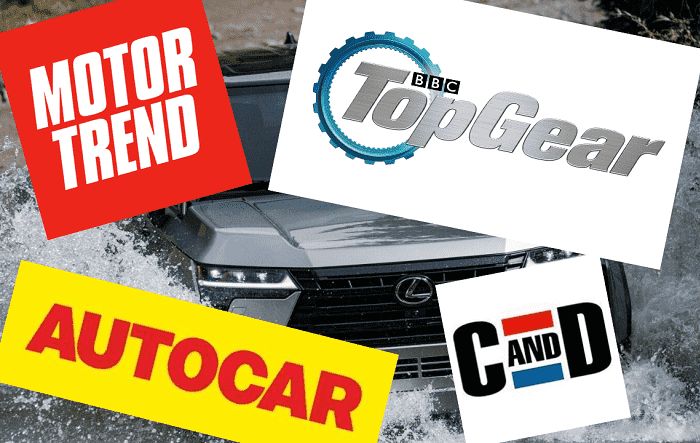If your Subaru car won't start but the lights turn on, the issue is most likely with the battery. If the engine cranks but sounds really weird, your car has been sitting for a long time and there is no compression in the cylinders. And the third possible issue when the Subaru won't start is the fuel pressure issues.
No-start problems highlights
- Level of urgency:High
- Can you drive?Obviously, no
- DIY inspection:Possible but complicated
- DIY repair:Mostly,impossible
- Price for repair:$250 - $850
- Common Reasons:Fuel or air supply, compression, spark, electronics
- Ways to fix:Check each system that may cause no-start, check electronics

Let's find out the symptoms of the issue
The symptoms will give you an important hint about what exactly malfunctions in your vehicle. The fact that the lights turn on doesn't mean that the battery has enough juice in it to actually start the engine. But it's still a good sign - at least you know that the car is not dead completely.
So, here are some of the symptoms you may experience in this situation:
- the engine doesn't crank, there may be a slight click when you press the start button or turn the key in the ignition cylinder;
- the engine may crank but the sound of the cranking engine is weird - like it's not intermittent but rather monotonous;
- the engine may crank like it usually does but still won't start for some reason;
- the engine may feel like it's starting but then it stalls immediately and you need to crank it again;
- the engine may crank very slowly and when it cranks, the lights on your dash go dimmer;
- just nothing may happen when you push the button or turn the key.
So, in each of these situations, you will be hinted to look at a certain part of the vehicle to try and solve the problem. If you just register these symptoms, it will be much easier for a mechanic to find the reason for the problem and locate the faulty unit.
Sometimes, using these symptoms, you may locate and even solve the issue on your own! So, let's discuss every possible situation in your Subaru.
1) The engine doesn't crank, some clicks may be heard from under the hood
One of the possible versions of this problem is when you just don't hear anything from the engine bay when you press the start button or turn the key. The lights are on but the engine feels completely dead.
It's not likely that the problem is with the battery because the engine would start cranking in this case. If it's completely dead, you should check the starter motor or the starter solenoid. Another possible issue is the wiring from the battery to the starter motor.
Locating the problem is pretty hard and you will obviously need some experience for this.
2) The engine cranks but very slowly and the lights go dimmer
In this case, the verdict is pretty simple: the 12V battery is in charge of the problem. It may be enough to turn on the lights in your Subaru but it won't be enough to crank the engine. Once you try to start the engine, the starter gives a certain load to the battery and the voltage in the system drops. This leads to lights dimming down.
There are a couple of options you can deal with this problem. You may use a booster or a charging unit to charge your battery and eventually start your Subaru. Also, you may jump-start the vehicle using just another vehicle and two special wires.
But the best solution for this problem is to basically replace the battery with a new one. This is also the best decision if the 12V battery in your car is already 4-5 years old or even older. Batteries tend to go bad for this time and charging will only help to prolong its life for a couple of weeks or even days.
3) The engine cranks but doesn't start or stalls immediately after starting
This is absolutely another story because in this case, the problem is not with the starter or with the battery. The engine cranks, so the starter is healthy. The cranking is OK, so the battery is also good. But why doesn't your Subaru start?
Most likely, the problem is with the fuel pressure. This is one of the common problems with all modern Subaru vehicles. Fuel pumps may stop working and this causes issues with fuel pressure. One more possible reason for this problem is a clogged fuel filter that wasn't replaced when needed.
Checking the fuel pressure on injectors is not as easy as it may seem when you read about this process. I would let professionals do this job for me if I had a not-starting Subaru in my garage.
Anyway, in most cases, the solution to this problem is the replacement of the fuel pump which is not cheap, unfortunately.
4) The engine cranks but the cranking sound is too weird
Subaru vehicles are almost always equipped with a so-called boxer engine. It means that its cylinders are located horizontally, not like in the majority of other cars. One of the common issues with this engine is long-sitting problems. When it sits for too long, the boxer engine may lose its oil film in the cylinders.
This may happen to any vehicle but with boxer engines, this happens faster.
When there is no oil film in the cylinder, the engine can't develop the needed compression. This explains the weird sound you hear from the engine when you try to start it. No compression means there will not be this common intermittent sound - your Subaru engine will sound rather monotonously.
One of the solutions is to keep trying to start the engine. It will lubricate itself a little and will eventually start. One more possible solution is to take the spark plugs off the engine and sprinkle a little oil into each spark plug well. But given the boxer construction of the engine doesn't allow you to do that easily, the first option is obviously your choice.
5) The engine cranks but doesn't start although everything else is OK
The last common problem that I'll mention in this article is the issue with timing. Your engine is like an orchestra - every part of it should work properly and with the proper timing. Once one instrument starts playing without proper timing, the whole orchestra sounds awful.
The timing chain or belt allows all mechanisms in your engine to work at the proper time. Valves open when needed, pistons rise when required, and fuel is injected right at the precise point of time. But if the timing chain or belt is worn out, they can jump a tooth or two and eventually lead to bad timing. So, the intake valves will open when the piston is in the wrong position and the engine just can't start and work, in this case.
If nothing else works, you should check the timing in your engine. This is not DIY diagnostics, so you better let professionals check the engine. If the timing is not precise, your belt or chain needs urgent replacement along with the entire kit.
Wrong timing is a pretty common thing with old and high-mileage engines that haven't been maintained well. Just learn how many miles your engine's timing system usually survives and have it replaced before it fails.
So, what should you do when your Subaru doesn't start?
If the lights on your Subaru turn on and the vehicle doesn't start, you will need to check which part of the car is faulty. It's not that easy but you may just use sections of this article as your checklist and move one by one until you find the actual reason for the problem.
The best thing is to pay attention to the symptoms that accompany this no-start problem. The more you notice, the easier it is to locate the problem.
Repairing your Subaru is not always easy. Even replacing a faulty spark plug or an ignition coil may be difficult because of their placement. In some cases, mechanics even need to take the engine off the vehicle to repair the timing system, cylinder heads, or some other parts that need a lot of steps to be done.
So, DIY repairs are not always possible. But we still recommend you diagnose the problem by yourself before letting specialists take over. If this is all about the 12V battery, you will be able to replace it for zero dollars, just buy the new battery in the nearby shop.
About the authors
The CarAraC research team is composed of seasoned auto mechanics and automotive industry professionals, including individuals with advanced degrees and certifications in their field. Our team members boast prestigious credentials, reflecting their extensive knowledge and skills. These qualifications include: IMI: Institute of the Motor Industry, ASE-Certified Master Automobile Technicians; Coventry University, Graduate of MA in Automotive Journalism; Politecnico di Torino, Italy, MS Automotive Engineering; Ss. Cyril and Methodius University in Skopje, Mechanical University in Skopje; TOC Automotive College; DHA Suffa University, Department of Mechanical Engineering






Add comment